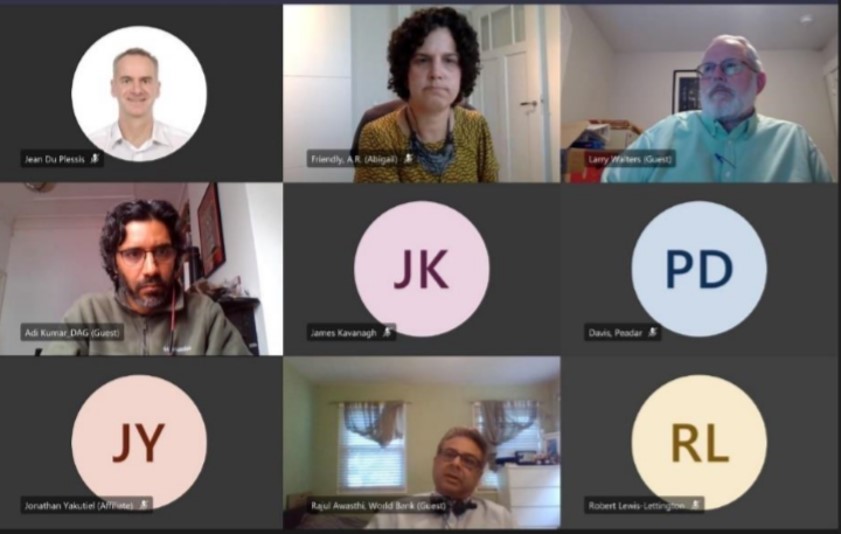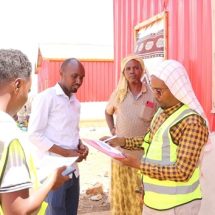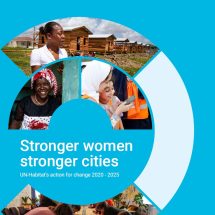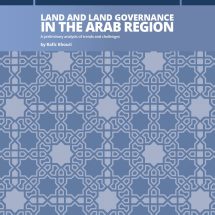The Global Land Tool Network (GLTN) and the Land, Housing, and Shelter Section of UN-Habitat, in partnership with the Local Government Revenue Initiative (LoGRI) of the International Center for Tax and Development (ICTD), have been organizing an ongoing series of learning sessions on the theme Leveraging Land for Delivery of Services, Building the Social Contract and Promoting Peace and Security. The sessions have been held virtually from September 2020 to date, convening on average 50 participants from over 20 different institutions/organizations per session. The organizations participating in the series were international organizations, government institutions, NGOs, Universities, and Development Partners working on Land-based finance.
The learning session is now in its third series. As in the first two series (2020-2022), the overall purpose is bringing together partners, academics, practitioners, and implementers to build an International Learning Network or Community of Practice (CoP) around advances, mobilization of good practices, innovations and challenges, in leveraging land for improved service delivery and local governance. This Network is building on its experience in promoting normative standards, developing and testing fit-for-purpose approaches and tools, and developing implementation capacities at country level. As such it tries to identify common-ground, opportunities for collaboration of different actors and knowledge gaps which require further research and verification.
Participants in the series have acknowledged that LBF is not only a technical but also a political process. Political commitment in LBF is a cornerstone of a strong, transparent, and equitable system through which revenue can be raised and where citizens can hold local and national governments accountable for the delivery of services, adequacy and affordability of housing, upgrading of slums/informal settlements, etc. Nevertheless, further research is needed to understand how to incentivize local authorities to leverage land more optimally. Participants and presenters have agreed on the importance of encouraging and strengthening multi-level dialogues and mobilizing local and central governments to build capacity around LBF tools and concepts for creating synergies and ensuring far-reaching impact. Emphasis was placed on contextualizing appropriate fit-for-purpose LBF approaches in the developing world where formal land registration is still a significant challenge, resulting in the predominance of informal land markets. Through this understanding, localized capacity can be developed through the introduction of flexible, inclusive/participatory and affordable systems and technologies as key drivers of change. A further insight is that land and property tax reforms should establish equitable, flexible, transparent and participatory processes, aimed at achieving reforms in land services, adequate and affordable housing, slum upgrading and the provision of basic services.
Downloads
Reports on the Learning Series, theme: Leveraging Land for Delivery of Services, Building the Social Contract and Promoting Peace and Security
Series 1
LBF Learning Series 1 Session 1: Leveraging land: Why, what, how?, 14 September 2020
LBF Learning Series 1 Session 2: Leveraging land initiatives by GLTN and UN-Habitat partners: Purpose, Methods, Progress, and Lessons, 12 October 2020
LBF Learning Series 1 Session 3: Strategies and tools for financing affordable housing and participatory slum upgrading, 9 November 2020
LBF Learning Series 1 Session 4: Leveraging land for peace, security and building the social contract, 8 February 2021
Series 2
LBF Learning Series 2 Session 1: The role of land in achieving adequate and affordable housing, 20 September 2021
LBF Learning Series 2 Session 2: The role of governance in optimizing local revenue collection for equitable delivery of services and building the social contract, 14 March 2022
LBF Learning Series 2 Session 3: Points-based assessment for land and property taxation-solutions, lessons, and way forward, 16 May 2022
LBF Learning Series 2 Session 4: FMDV and the PIFUD project in Uganda–Progress, challenges, and way forward, 12 July 2022
LBF Learning Series 2 Session 5: Dynamics of Local-Central Government Collaboration: Examples and lessons from different countries
LBF Learning Series 2 Session 6: Key issues concerning the introduction of property tax as part of the municipal response to the changing township-built form in the South African context
Series 3
Concept Note and Programme
LBF Learning Series 3 Session 1: Rapid Own Source Analysis (ROSRA). A New Tool for Own-Source Revenue Self-Optimization
LBF Learning Series 3 Session 2: Too much analysis too little action? The role of diagnosis in supporting local revenue reform in fragile states
LBF Learning Series 3 Session 3: Links between land titling and property tax reform
LBF Learning Series 3 Session 4: Linking property tax revenue with service provision
Series 4
LBF Learning Series 4 Session 1: The land question underpinning the affordable housing crisis
LBF Learning Series 4 Session 2: Taking stock of the learning series (2020-2023)
COMPREHENSIVE REPORT. LAND-BASED FINANCE LEARNING SERIES. Participants, topics, themes, and way forward
LBF Learning Series 4 Session 3: Linking Property Tax to Land Administration












